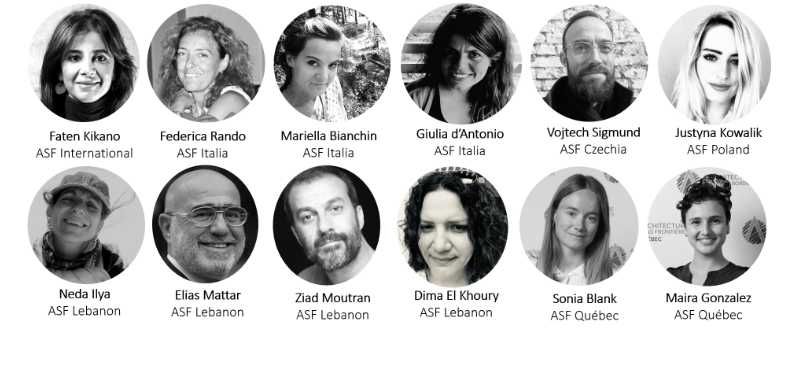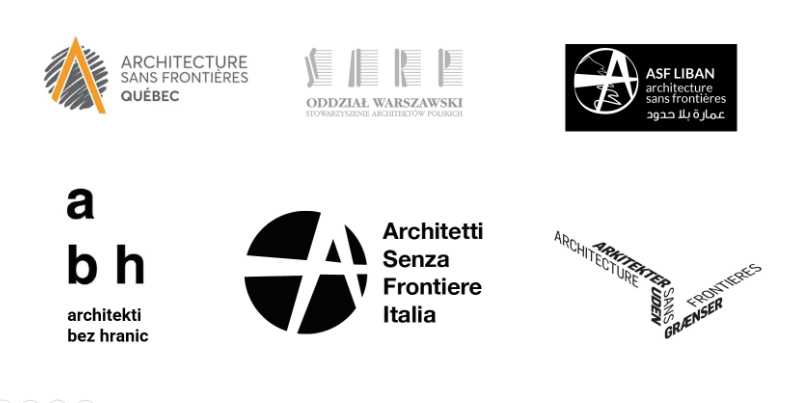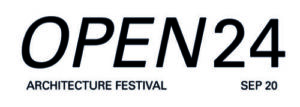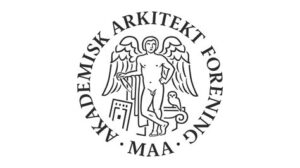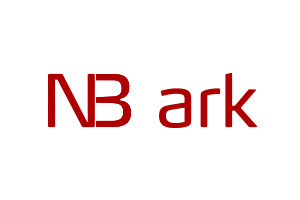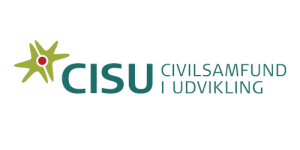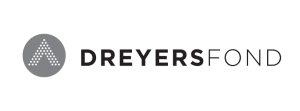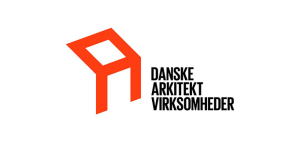Housing the displaced and the homeless:
the role of humanitarian architecture
This is a free, public event organised by the Migration and Internal Displacement working group of Architecture Sans Frontières International and hosted by Architects Without Borders Denmark
Sunday July 2. from 14-15.30 CEST.
Community Hall, entrance B at Fælledvej 12, 2200 Copenhagen N., Denmark
Please arrive at least 5 mins. before start.
Registration is required for this event. Please register here.
Online participation possible via this teams-link.
How do Architecture Sans Frontières member organisations respond to issues of urban vulnerability such as settling the forcibly displaced after a conflict or a disaster or housing the homeless? In this annual colloquium, architects, designers, urban planners, and other specialists of the build environment, members of different chapters of Architecture Sans Frontières, share their strategies, challenges, and learnings in various situations of urban vulnerability.
This event is organised by the Migration and Internal Displacement working group of Architecture Sans Frontières International (ASF-int) and hosted by Architects Without Borders Denmark. It tends to be an annual recurring event, followed by a publication in a special number of the ASF Newsletter. The colloquium takes place simultaneously with the General Assembly of ASF-Int and the International Union of Architects (UIA) World Congress in Copenhagen, Denmark, which is also appointed UNESCO UIA World Capital of Architecture in 2023. The UIA congress is the world’s largest event in sustainable architecture.
Programme:
14-14.05: Faten Kikano, ASF-international, moderator.
Introduction and presentation of the colloquium
14:05 – 14:15: Federica Rando, ASF-Italia.
Costruiamo Saperi – Learning by renovating a farmhouse in Sicily
14:20-14:30: Vojtech Sigmund, ASF-Czechia.
Strategies of integration of Ukrainian refugees in Prague
14:30-14:40: Ziad Moutran, ASF-Lebanon. Children’s Right to Play: Revamping a School Playground in a Vulnerable Neighborhood, Nab’aa, Beirut
14:45-14:55: Mariella Bianchin & Giulia D’Antonio, ASF-Italia. ERSILIAlab. La Biblioteca delle Relazioni – The “Library of Relationships” between Roma and Gagé
14:55-15:05: Sonia Blank, ASF-Quebec. Urban solidarity program
15:05-15:15: Justyna Kowalik & Julia Brzezińska, ASF-Poland. The Central European governments actions and private initiatives in respond to the Ukrainian migration crisis
Abstracts:
Abstract 1: Costruiamo Saperi
Learning by renovating a farmhouse in Sicily, Ragusa, Italy 2015-2017
Beneficiaries: unemployed foreign workers living in RagusaPartners: Diocesi di Ragusa, Caritas Ragusa, Confcoperative Ragusa, Uniti Senza Frontiere. Funds: Fondazione Con il Sud.
The territory of Ragusa has been included in the UNESCO World Heritage List for its baroque architecture. Despite that most of the historical buildings are lying abandoned. The historical city is shrinking and is mainly inhabited by immigrant families, who live inside degraded buildings, where rents are low. Most of these inhabitants are unemployed and disadvantaged on the labor market.
Furthermore, just outside the city, the fertile territory and the mild climate allow abundant agriculture all over the year. Work in agricultural sector is often dramatically exploited and underpaid. In particular, glasshouse workers –mostly coming from Romania and North Africa– live in harsh conditions, sleeping in shuts and working off the books. Given this context, together with Caritas Ragusa, Confcoperative Ragusa and Uniti Senza Frontiere we started a project which combined the renovation of historical buildings to the definition of equitable working conditions and professional training.
The project was called Costruiamo Saperi, “let’s build knowledge”, and aimed at engaging 50 disadvantaged and marginalized migrants (both women and men) in the renovation of an ancient abandoned farmhouse called Contrada Magnì, owned by the Diocese of Ragusa. After three years of learning by doing training and work, at the end of the project, many migrants have started working in regular professional contexts linked to what they learned during the project. Some others have turned into entepreneurs, as they co-funded two working specialized cooperatives in Contrada Magnì: one is devoted to agriculture and the other is a carpentry workshop.
ASF Italia team: Silvia Nessi, Mariella Eleonora Bianchin, Francesca Albertoni, Marco Tommaseo.
Link: https://www.asfitalia.org/costruiamo-saperi-ragusa-italy
Abstract 2: Strategies of integration of Ukrainian refugees in Prague
Author: Vojtech SIGMUND
Organization: Architekti bez hranic (Architectes Sans Frontières Czechia)
The Czech Republic faces a historically unprecedented challenge – the need to help hundreds of thousands of refugees from Ukraine fleeing from attacks by the Russian army and the need to integrate a large part of these refugees into Czech society in a way that preserves their human dignity and benefits the Czechia in the long run. In order to accomplish this task given the number of refugees, it is necessary to take into account, in addition to social solidarity, primarily integration strategies in the areas of housing, education, work, health, psychological support or informing.
It can be expected that a substantive part of refugees will stay in the Czech Republic for a longer period of time and proper integration in housing, involvement of children in education and use of qualifications in work life is a prerequisite for full participation of refugees in Czech society, which can be socially and economically beneficial in the long run. The goal in the area of housing is a short-term stabilisation of refugees and in the medium term the creation of larger offers in rental and other types of housing and related support, which will ensure sufficient housing for Ukrainian refugees and other vulnerable parts of the Czech population.
The City of Prague with the financial support of the United Nations Children’s Fund (UNICEF) opened the Centre for Follow-Up Support for Ukrainian Refugees, which provides consultancy in the following areas: housing, social support and care, healthcare and education.
Abstract 3: ERSILIAlab. La Biblioteca delle Relazioni. The “Library of Relationships”
Between Roma and Gagé. Via Bonfadini and via Sacile, Milan, Italy. 2016-2018: design and realisation of the 1st phase.
Beneficiaries: Roma community of via Bonfadini and via Sacile, neighborhood Molise-Calvairate-Ponti residents.
Partners: Fondazione Somaschi, Casa della Carità
Funds: Otto per mille Chiesa Valdese, Fondazione Cariplo, Comune di Milano
Urban poverty and its spatial representation are intrinsically linked to the way cities are socially produced. Our understanding of exclusionary practices and processes in the built environment is based on the idea that spatial structures are simultaneously the means and outcome of social relations. In two streets of East Milan urban fringes a regular Roma camp and an emergency living center are located.
These settlements are like urban slums. In particular, the emergency living center –that was permanently closed on Spring 2019– hosted prevalently Roma people coming from forced evictions. The local political agenda has been committed to find solutions on Roma urban and social inclusion for long, however, no shared answer has already been reached. Since 2016, we have developed a project to foster self-promoting processes inside Roma settlements through architectural incursions.
This project is called ERSILIAlab the “Library of Relationships” and it is part of a wider program called ERSILIA, promoting relationships between Roma people and Gagé (in Romani language, the non-Roma people). After a year-long process, made of workshops, meetings, events and neighborhood parties, ERSILIAlab La Biblioteca delle Relazioni has culminated in the construction of a mobile pop-up carriage, called Il Carro di ERSILIA, built by Roma and Gagé together. “Il Carro” is conceived as a public mobile space designed to share mutual knowledge and diffuse Romani culture not only in the neighborhood but across the entire city of Milan, thanks to a series of public events such as exhibitions, performances and social gatherings.
ASF Italy team: Silvia Nessi, Giulia D’Antonio, Francesca De Ponte, Mariella Eleonora Bianchin, Francesca Albertoni, Marco Tommaseo, Caterina Selva, Ivan Cosentino, Luigi Mastellone, Fabio Gandolfi, Bianca Cesarotti, Michela Caserini, Elena Parnisari.
Link: https://www.asfitalia.org/ersilialab-la-biblioteca-delle-relazioni-milan-italy
Abstract 4: Children’s Right to Play: Revamping a School Playground in a Vulnerable Neighborhood, Nab’aa, Beirut
Ziad Moutran, Neda Ilya, Elias Mattar, and Dima El Khoury
ASF Lebanon
Abstract: Experts agree that a child who plays is a child who lives in his body and mind. Through playing the child builds his universe and the foundations of his personality, he develops his intelligence, integrates the rules of social life, respect and empathy, and learns to resolve conflicts. Public schools in Beirut suffer from lack of suitable outdoor play spaces for children. This situation became even more pertinent after the August 4, 2020 explosion. Further to the physical damage of these schools, come the long confinement months due to COVID 19.
ASF Liban is focusing on the challenging Al Salam School project with the aim of providing the children with adequate, well-designed outdoor space where they can play and interact safely. The location of Al Salam School is very pertinent to our cause as it is in a marginal, overpopulated neighborhood of Beirut, Nab’aa. The school itself is very run down and in need of serious renovation. However, we are concentrating our effort on its play space.
Our mission is aimed at vulnerable children and our objectives are as follows:
a. To create play spaces dedicated to children and their basic needs to play, to feel joy, and where their natural resilience is challenged and strengthened
b. To encourage the design of these spaces with innovation, engagement in research, and creation of solutions
c. Design principles: To encourage the potential of community participation through a participatory methodology where children can be involved in the making of the play space and equipment
This first play space to be implemented by ASF Liban is intended as a pilot project for the replication of the experience in other schools in Beirut and throughout Lebanon.
a. To increase the feeling of security and safety
b. To ensure variety and adaptability
c. To promote robustness and durability of the play space
d. To get the local contractors involved and bring some “action” into the area.
Abstract 5: The urban solidarity program
Montréal, Québec. 2021-2024 (ongoing)
Sonia Blank, architect + researcher, Maira Gonzalez, designer + project manager
The urban solidarity program, created in 2020 by AWBQ, supports community-based design projects aimed at urban equity and social inclusion. Within this program, the research-action project “Montreal: supportive city through design and architecture” focuses on the development of design strategies that address the increase of people experiencing homelessness or at risk (PEH) in urban areas, due to the global pandemic, as well as the housing, migratory and climatological crises.
For this colloquium, we will briefly present the two components of the research-action project in which our team operates. The first one, a design service, where architectural expertise is used to help communities in precarious situations, including PEH. The team works with organizations to co-create spaces that respond to the needs of employees, social workers, but mainly the inhabitants and/or users of these spaces. The second component, a research project on architecture and homelessness, aims to answer the following question: “How can design be mobilized for the well-being of PEH and the recognition of their presence in the city?”. As a first step, this research included the publication, in January 2023, of a catalogue on innovative, solidarity-based design practices with/for PEH. In the months to come, our team will conduct fieldwork research with PEH and other stakeholders in Montreal and other Canadian cities. These two components, the research and the design service, inform one another through the different processes, aiming to fil research gaps but also improve the way we design for PEH.
AWBQ Urban solidarity team : Maude Ledoux, Olivia Daigneault-Deschênes, Maira Gonzales, Sonia Blank
https://www.asf-quebec.org/en/our-programs/urban-solidarity/
Abstract 6: The Central European governments actions and private initiatives in respond to the Ukrainian migration crisis
J. Kowalik, Secretary General of ASF International
Chair of Architecture without Borders Poland
In March 2022, the Eastern Europe reality has been brutally disrupted and changed. After the full-scale attack on Ukraine millions of citizens were forced to hide and flee to save their lives.
The lecture presents the statistics of the displaced movement and the ways of responding to the crisis- both- governmental actions and private institutions initiatives.
Basing on this experiences author tries to answer to the question is it possible and how to improve the migration response and actions to provide the best help to vulnerable, displaced people.
Biographies:
Faten Kikano, expert in the study of refugee spaces
Faten Kikano holds a PhD from la faculté de l’Aménagement at Université de Montréal. She studies the appropriation of camps and non-camps spaces based on a transdisciplinary approach, revealing the political, socioeconomic, legal, and humanitarian issues that influence refugees’ living environments. Drawing from an experience of 20 years as a practitioner and a university professor in Lebanon, she has developed workshops on humanitarian architecture and post-disaster reconstruction in Turkey, Jordan, and Canada with the Arab Reform Initiative and McGill University, targeting local architects and urban planners. She has a great competence in publishing and disseminating information on international platforms. She is an associate researcher in Œuvre Durable and an associate researcher in l’Observatoire Canadien sur les Crises et l’Action Humanitaires (OCCAH). She is presently leading projects on homelessness in Montrea in the Cérsé, a Canadian research center that targets innovation, equity, and social inclusion. Her lifetime vocation is to develop effective policies that will advance spatial justice for the underprivileged and the minorities.
Faten is the leader of the Migration and Internal Displacement group in ASF International. She is the organizer of the colloquium along with the group members.
Vojtech Sigmund, architect and co-founder of the ASF-Czechia
Vojtěch Sigmund is interested in affordable housing issues and interconnection of social issues and architecture. He spent part of his life abroad (France, Sweden, Canada), where he was inspired, among other things, by civic engagement of people and architects. Besides activities for Architects without Borders, he works as a project manager of social housing in the City hall of Prague. He finished a PhD. thesis with a theme “Social housing – participation and self-built”.
Sonia Blank, architect and researcher, AWBQ
Sonia Blank split her Bachelor of Architecture studies between the University of Montreal and the Technical University of Munich, Germany. She worked for two years in architectural offices in Munich, where she participated in numerous design competitions in architecture and urban planning. Throughout her career, she has developed an interest in multidisciplinary research and in major urban issues. Her Master of Architecture project, a thesis in research-creation (McGill University), criticizes planning practices in former conflict zones in Berlin. After three years working in heritage conservation at EVOQ Architecture, Sonia is committed to the mission of Architecture Without Borders Quebec, wishing to combine research and practice in a project that addresses the community above all.
Maira Gonzalez, designer and project manager, AWBQ
Maira Gonzalez holds a bachelor’s degree in industrial design from the University of Bogota Jorge Tadeo Lozano (UJTL) and a master’s degree in environmental design from UQÀM. She specializes in the design and implementation of small- and medium-scale projects, oriented towards human beings and their socio-cultural relationships. For the past 5 years, she has been carrying out design and development projects with a strong social impact, managing ecoresponsible projects and participating in the development of participatory methodologies with at-risk populations. These various involvements have allowed her to perfect her skills in the field of co-creation and co-creation with a focus on sustainable development and citizen governance.
Justyna Kowalik, President and founder of ASF Poland
European based, licenced architect and 3d artist. MA with honours in architecture and urban planning at Warsaw’s University of Technology. One of the founders and active member of Architekci Bez Granic OW SARP Poland. Leading designer and participant in several ASF PL designs, initiatives and workshops all around the world.
Areas of Interest: Improving the quality of living of the poorest and most vulnerable societies, bringing help to societies suffering from natural disasters. Sustainable design and architecture as a tool to fight with global climate changes.



